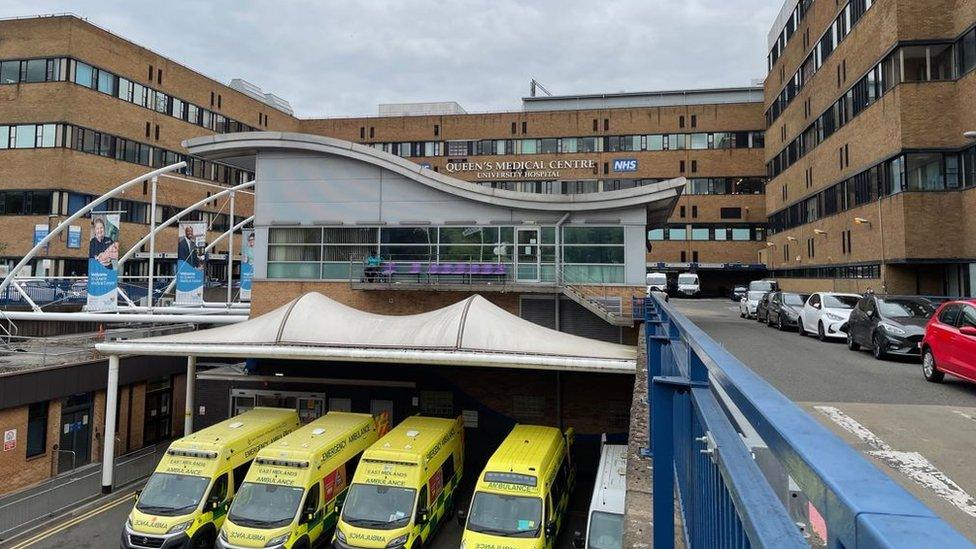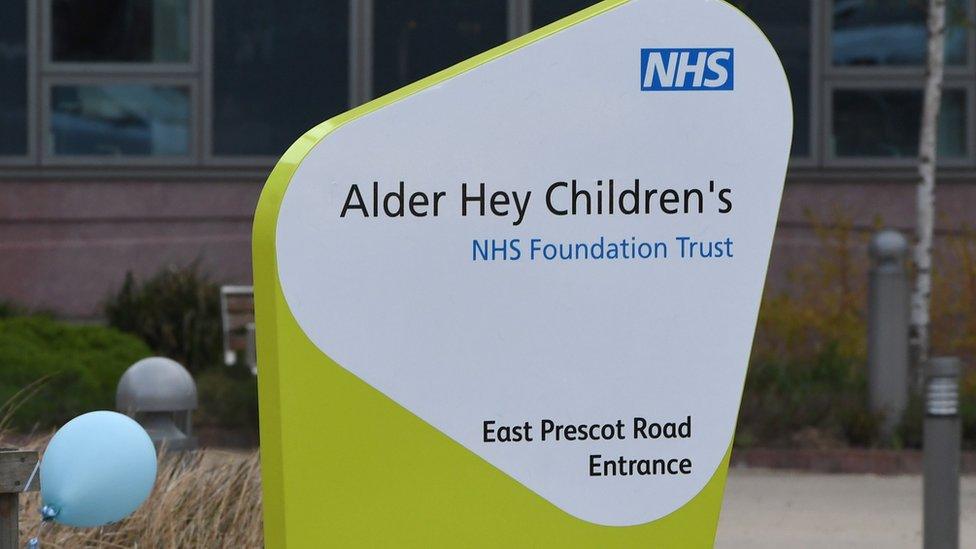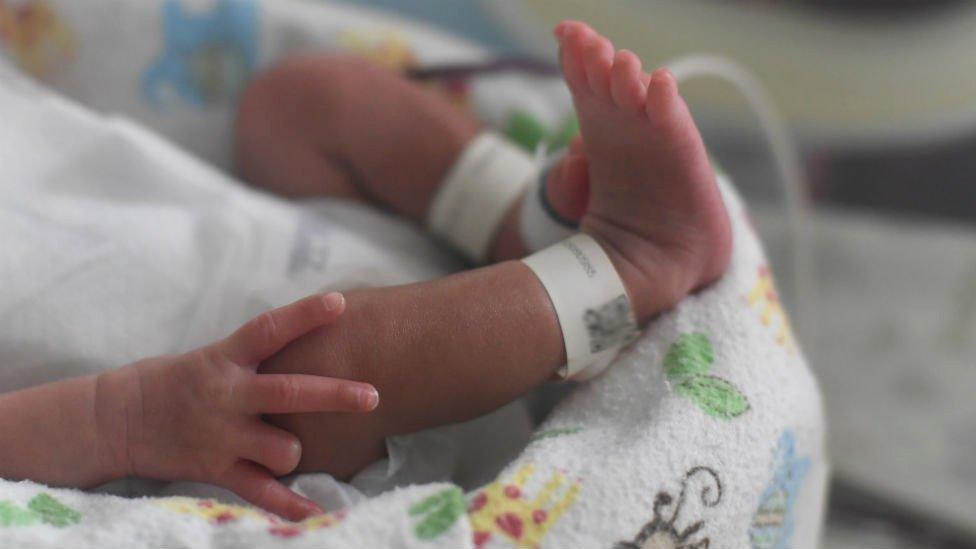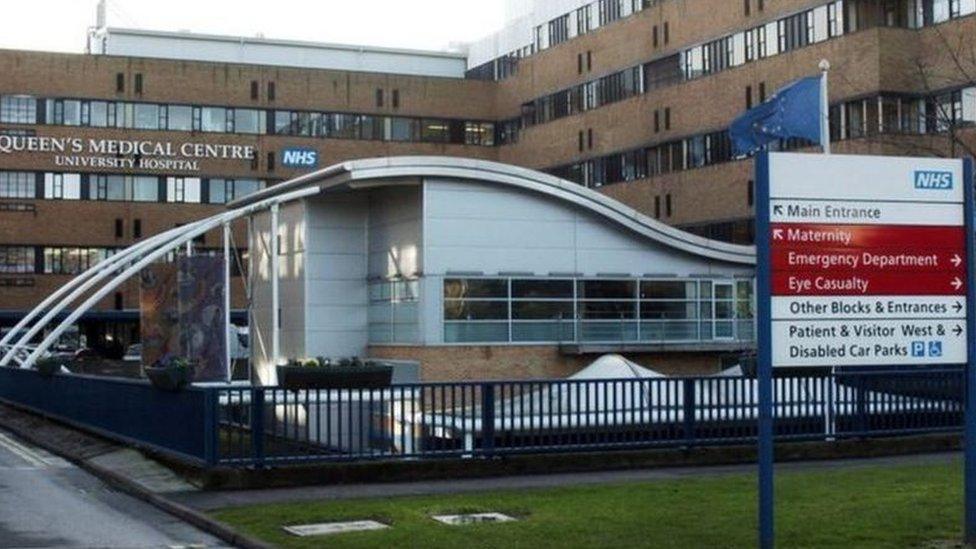Hospital trust payout over baby boy's brain injury 'could total £20m'
- Published

Nottingham University Hospitals Trust is already facing a review after a series of problems
A boy who was born with cerebral palsy could be in line for compensation up to £20m, a barristers' chambers says.
A High Court ruling this week found negligence in the care of a woman who gave birth at City Hospital in Nottingham in 2004.
Her reports of concerns over a lack of foetal movement were not acted upon, a judge found.
Nottingham University Hospitals (NUH) NHS Trust said it "will work with the family to resolve the claim".
The trust is already facing demands for a public inquiry over problems with its maternity services.
'Breach of duty'
On 6 October 2004 the baby's mother - referred to in court documents as LJR - had attended an appointment at an antenatal clinic as a community midwife was concerned the baby was in the breech position.
She described the clinic as "chaotic and running late", saying she was only seen by one doctor.
An ultrasound found the baby was not in a breech position, but LJR said she told the doctor about her concerns over reduced foetal movement and they were not acted upon.
The doctor told the court she did not remember the individual case from 17 years ago but said she would not have performed the ultrasound scan as she had not been trained and would have treated any report of a lack of movement as a "red flag".
LJR reported a strong foetal movement two days later, the court said, but after being concerned over a lack of movement following a bath on 10 October she was urged by her husband to attend hospital.
The boy was born that evening following an emergency Caesarean section.
He had "suffered permanent damage from chronic partial hypoxia which has resulted in asymmetric quadriplegic cerebral palsy", the High Court judgment said.
Mr Justice Cotter said LJR's account of having to be persuaded to return to hospital was "wholly consistent" with her saying she had been reassured over a lack of movement.
He said medical notes after the birth "are not inconsistent with her having been concerned about reduced (as distinct from no) foetal movement" beforehand.
Not following up LJR's concerns from 6 October constituted "a breach of duty", he concluded.
'Stubborn refusal'
The level of compensation for the medical negligence is not expected to be finalised "until 2023 at the earliest", according to a spokesman for the family's legal representative.
In Liverpool, a boy who suffered "catastrophic brain injuries" following seizures as a toddler will receive up to £27m, while in 2020 it was revealed the NHS in England could have to pay more than £4bn to settle outstanding claims.
A spokesman for Parklane Plowden Chambers, which represented the claimant's family, said the figure of up to £20m "is calculated mainly on the basis of the cost of commercial care, aids and appliances and accommodation for the claimant for the rest of his life".
Howard Elgot, who acted for the boy and his family in court, said he was "extremely happy" with the decision.
"They have been involved in this litigation for many years, and I pay credit to their patience and perseverance in the light of the stubborn refusal of the trust to countenance settlement of the claim on any terms," he said.
In a statement, a trust spokesperson said: "We apologise to the family that we did not fully investigate the report of reduced foetal movements when the mother attended an antenatal clinic at City Hospital 17 years ago.
"We will work with the family to resolve the claim as soon as possible."

Follow BBC East Midlands on Facebook, external, Twitter, external, or Instagram, external. Send your story ideas to eastmidsnews@bbc.co.uk, external.
Related topics
- Published11 November 2021

- Published22 November 2021

- Published1 July 2021
